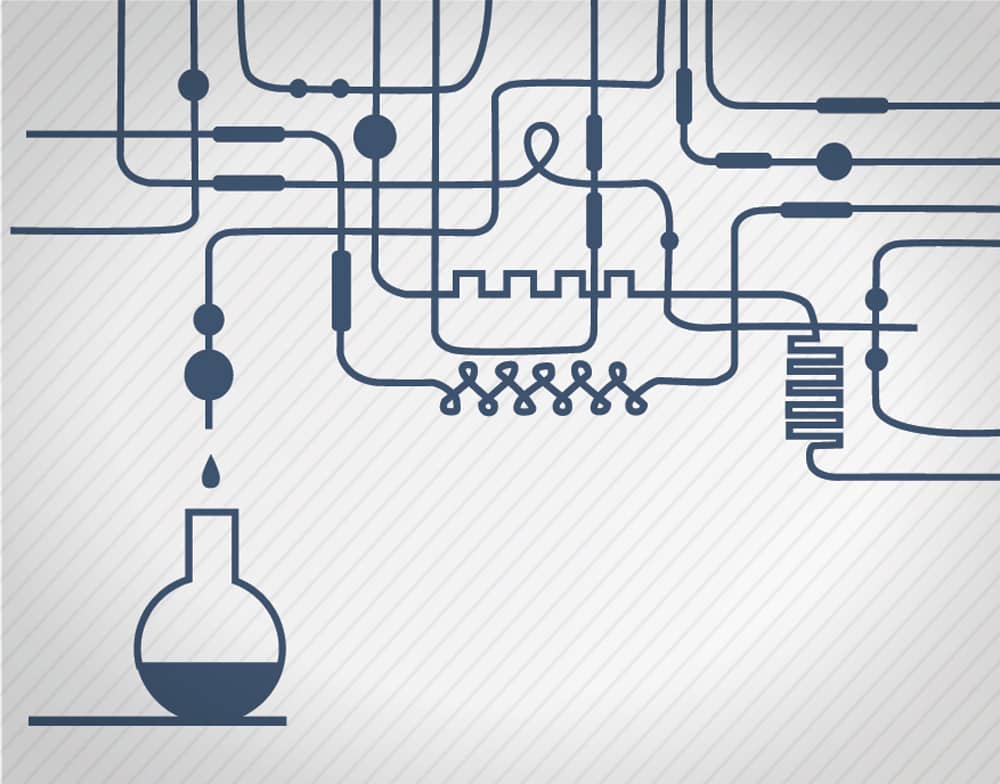Investment that supports world-class scientific research is a key priority for Ireland as it looks to retain its reputation as a hub for science innovation.
Over €30m investment in scientific research, which will support 100 research positions working on 23 projects involving 40 companies, was recently announced. The funding, which will be delivered by the Department of Jobs, Enterprise and Innovation through the Science Foundation Ireland (SFI) Investigators Programme, will provide funding over a four to five-year period. With 23 research projects involved, this will make a considerable difference to the 100 researchers working on various research projects. Funding for each project will range from €500,000 to €2.3m.
“This funding provides assistance to individual researchers to advance their investigations and address key research questions in sectors such as energy, medicine, food and nutrition, technology and agriculture,” Minister for Skills, Research and Innovation, Damien English, said.
“It allows researchers to further their careers and build partnerships with leading industry partners who also benefit from access to some of the leading academic talent on this island,” the minister added.
INVENTIVE INVESTIGATIONS
The SFI Investigators Programme is an important contributor to Ireland’s credentials as a research leader in a number of sectors and supports excellent scientific research that has the potential to impact Ireland’s society and economy.
The 23 projects were selected by competitive peer review involving 400 international scientists after a call for proposals across a number of thematic areas of national and international importance. The awards include research in areas such as materials science, data management, medicine and pharmaceuticals, food and nutrition, agriculture and veterinary research and have links to 40 companies.
Professor Mark Ferguson, director general of Science Foundation Ireland and chief scientific adviser to the Government of Ireland, added: “The SFI Investigators Programme provides important support to researchers in Ireland, creating employment opportunities and allowing them to leverage State funding to access additional funding streams, such as the EU’s Horizon 2020 Programme.
“Their research focuses on areas such as Alzheimer’s disease and cancer, animal breeding and disease prevention, ICT and data storage, as well as bioenergy among other topics.”
According to Ferguson: “These are areas that will make a difference to both Ireland’s economy and society. All of the successful projects have been peer reviewed by international experts to ensure scientific excellence and we have funded every project deemed to be of the highest standard internationally.”
Healthcare services in Ireland could be transformed as a result of innovative research conducted at ARCH
RESEARCH AND TRAINING
In other positive news, The National Institute for Bioprocessing Research and Training (NIBRT) recently published its 2014 annual report, reporting significant growth across industry, research and training activities for the year.
NIBRT operates as a global independent centre of excellence for training and research in bioprocessing and highlights Ireland’s attraction as a location for the development of leading-edge biopharma operations.
With its strategic research and training support presence, NIBRT has helped IDA Ireland to win a number of significant biopharma investments for Ireland, including Regeneron, Alexion and more recently Bristol-Myers Squibb.
Since 2004, there has been €9bn of capital investment committed to new biopharma facilities in Ireland. The development of biopharmaceuticals has become the fastest growing area of pharmaceutical development, with seven of the top 10 drugs in the world now in production or under development utilising biopharma processes.
The Irish Medical Devices Association (IMDA), the Ibec group that represent the medical technology sector, also reports that conditions in the medical device sector in Ireland are positive. Its sentiment survey finds that 94% of companies are confident about their business. Exports are back on the rise with 73% of companies expected to increase exports; 77% of companies expect to see sales increase; 44% of medtech businesses expect to increase the number of employees; and 35% expect an increase in R&D expenditure.
CONNECTED HEALTH
Healthcare services in Ireland could be transformed as a result of innovative research conducted at the new Connected Health Technology Centre launched by Minister Richard Bruton in May this year. The €5m Applied Research for Connected Health (ARCH) is hosted at UCD where researchers from clinical, engineering, technology, policy and economic fields – with input from UL, and most higher education institutes in the country with connected health research capabilities – will collaborate to deliver on the connected health research agenda.
Michael O’Shea, ARCH Centre director said: “Every country in the world is facing infinite demand for healthcare services from finite resources, spiralling costs caused by the invention of new drugs, medical equipment and procedures, higher patient expectations and an ageing population (by 2051, close to 40% of the EU’s population will be older than 65).
“Combined with shortages of health professionals, the scale of the challenge is daunting. However, advances in technology, such as those being developed through ARCH, are enabling a shift towards personalised healthcare and information-based health services which will improve patient experiences and reduce the cost of delivering healthcare.”
THE POWER OF INVESTMENT – projects supported by SFI Investigators Programme
PROF. MARTIN STEINHOFF, UNIVERSITY COLLEGE DUBLIN
Worldwide, itch is the most frequent symptom in dermatology with a significant impact on quality-of-life for patients and their family members. Therapy-resistant itch is a major medical burden in many diseases (skin, renal, dialysis, liver, leukemias) and elderly people. A major barrier for therapeutic progress is our poor understanding of the molecular mechanisms of itch in humans. To develop new treatments against therapy-resistant itch, we will first identify in a translational setting key cytokines and chemokines in different human itch subtypes. With companies, we will then test in human studies the beneficial effects of treating itch by blocking cytokine/chemokine pathways.
PROF. FIONA DOOHAN, UNIVERSITY COLLEGE DUBLIN
The challenge of increasing wheat production by 70% to feed the world population in 2050 is great. We have to make a concerted international effort to increase yields, not least by controlling the diseases that reduce yield and contaminate grain with toxins. This project focuses on unravelling novel mechanisms involved in wheat response to stress and delivering knowledge and tools that can be used in plant breeding and crop biotechnology in order to improve wheat resistance to disease. Consequently, it will contribute to our understanding of plant biology, and to the development of sustainable means for enhancing food productivity.
PROF. JUSTIN HOLMES, UNIVERSITY COLLEGE CORK
Increasing the number of transistors on a silicon chip enables the production of faster and smaller mobile and computing devices. However, current and prospective future mobile devices based on existing technology are energy inefficient due to high power consumption and the dissipation of a large amount of heat, leading to wasteful battery usage or the requirement for elaborate cooling systems. This project will develop new nanoscale materials for energy efficient electronic devices. Successful implementation of the materials developed in this project could lead to smarter and greener electronic gadgets.
PROF. NOEL O’DOWD & PROF. SEAN LEEN, UNIVERSITY LIMERICK
We aim to develop new modelling tools for Irish industry for more accurate design and assessment of materials and structures. The focus will be on welds, which are the most common location of failure in engineering components. The tools will be used to provide tailored combinations of welding and heat treatment parameters, to design material structures at the nano, micro and macro-scale. Specific applications are the design for optimum grain size in power-plant steels and improved designs for steel pipelines used in oil and gas offshore platforms.
PROF. STEFANO SANVITO, TRINITY COLLEGE DUBLIN
Our society produces immense quantities of data. In 2050, a hard disk with the diameter equal to the distance between the earth and the moon will be necessary to record all the information produced by humanity. For this reason the development of new, denser and faster ways to store information is key to maintain our standard of life. This project will construct a range of designing tools for developing such next generation of recording devices. In particular it will create a simulator for fast magnetic memories and a protocol for identifying the most useful materials to fabricate such devices.
DR DONAGH BERRY, TEAGASC
The agri-food industry is the largest indigenous industry in Ireland. The objective of this proposal is to achieve the Irish Government’s strategy of increased animal production through: greater exploitation of more precise genetic information; more precise estimation of how each genetic variant affects performance; and development of precision mating plans. The results will be disseminated to industry through low-cost, customised tools and resources, which are also applicable to other species and breeds.





